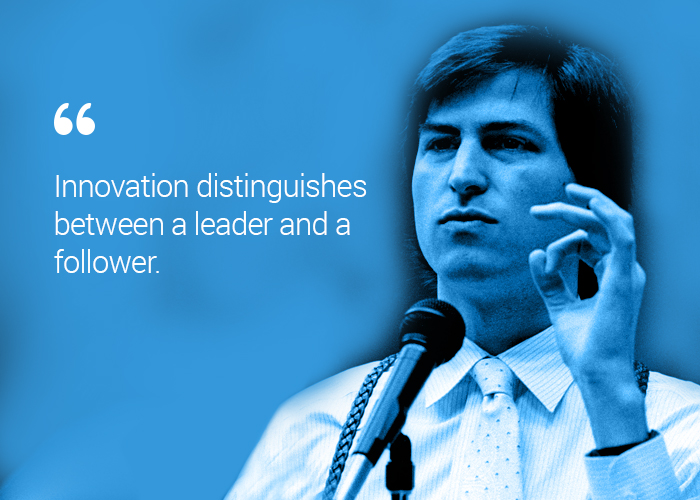This Changes Everything
This changes everything: A world inspired by Steve Jobs – PART 1
Remember when the late Steve Jobs stood on that stage with the first iPhone in his hand, and announced to the world, “This changes everything”? At the time, many people (including me) said, “Uh-huh. Right.” It turns out he was.
The technology that smartphones have put at arm’s reach have transformed how we do many things, at any time of the day or night. Here are a few examples from my own daily life. I’m sure you’ll have more.
- Check the weather
- Check in for a flight while in the cab on the way to the airport
- Swap FB messages with my cousin on the other side of the Atlantic
- Find my missing keys
- Deposit cheques without actually visiting the bank
Do you remember the days when you had a question (who was that actor in that movie….) – and you just had to not know it?
Smartphones are very visible, but the real revolution is how the web (especially the mobile web) has permeated our everyday life. We still have some way to go until we reach the true future. Siri is smart technology, but nobody would mistake her for artificial intelligence. Yet.
But…. what we do have today has given us the following:
- Automation: it’s got rid of much of the grunt work.
- Integration: lots of different small tools, that work beautifully together.
- Access: location matters much less than it used to.
We’re finding this truly does change everything. I’d like to explain why. As usual, I assume you are a business owner, if you’re reading this. And, of course, I’m an accountant – so I’m a bit biased….
This is part 1 of 2 on this topic. Today, I set the scene: what’s wrong with how accountants and bookkeepers have traditionally served their clients. Next time, I’ll try to explain how we are creating a new business model – for our clients and for us.
Luck changes everything
When we opened our doors waaaaaaaay back in 2014, we were going to be just another accounting firm. You know: tax returns, year-ends, that sort of thing. Fortunately, Allison had other plans. She loves to play with technology. See what works. Try to break it. And… I always like to say: “There has to be a better way”.
We were also lucky. The technology came of age at exactly the right moment for us: we were up-and-running, but we didn’t have such a large legacy base of clients that it would have been too disruptive to look to a new business model. So we’ve been able to explore it.
The traditional model: Numbers as nuisance
When I meet a new client, I always ask this question: “How do you feel about your numbers? Do you use them to help you run your business? Or do you keep books simply because you have to file tax returns?”
I’m amazed how many people tell me they hate their numbers. Or run their business without referring to their numbers at all. And we’re talking real businesses here: several $m of sales, perhaps a dozen employees. Certainly too big to keep it all in your head.
Why do people hate their numbers?
It’s simple: For many people, the sole function of their accounting system is to generate reports needed to file returns. It’s typically fit for purpose (if you use it right) – but it does nothing else. The information is of no use in your daily life. It adds no other value to your business.
People also associate it with things like HST and payroll – and those brown envelopes which arrive in the mail. In other words, stress factors in your already-busy life.
So bookkeeping is always the last thing a business owner wants to do. This means you leave it as long as possible, give it minimal effort – or pay someone else to do it.
Professional bookkeepers work in this space. Some are excellent and pro-active, and can relieve your stress. Others (at the lower end of the scale) are essentially data-entry clerks who have been trained on a particular piece of software. But… ultimately the best job a bookkeeper can do is to be competent and effective at their compliance-driven task. They’re not going to change how you run your business.
Too big to ignore the numbers?
Your average larger company probably has decent internal bookkeeping. But they’re also paying for it. For example, I know a wholesaler who sells about $25m of product a year. They have an accounting team of 5 people, some of whom spend most of their days entering data. Others make sure that the different systems agree with each other. Fully 1% of their gross sales is spent on bookkeeping and compliance reporting. That’s a lot of money. I also question how much their management team actually uses the information these 5 people spend all their time creating.
Many smaller businesses can’t afford that. So….. you muddle by…. doing the bare minimum to keep the paperwork under control, throughout the year
Does your accountant help?
When it comes to year-end, you visit their accountant (let’s call him Bill), who does your taxes. There are more problems with this business model than I can shake a stick at. Here are a few examples:
- As a trained financial professional. Bill should be able to add value to your business. But…. the time lag means he doesn’t. Example: If today (March 2017) Bill signs off on your September 2016 numbers, some of those transactions took place 17 months ago (October 2015). No practical use to you at all.
- Although he might deny it, Bill knows almost nothing about your business and how you actually run it. For example, nothing about how seasonality or a change in the exchange rate helps or harms your business, or who your best customers are. So, no use as a business advisor.
- You frankly have no idea what Bill’s doing. His office is a black box, where your information sits for several months until he calls to tell you your taxes are done. He calls you occasionally with odd questions.
- He sends you a large invoice, at exactly the same time as you have to pay your taxes. If you complain about it, Bill explains how many errors he had to fix in your numbers – but he offers no practical help in how you can avoid this in the future.
- If you have a problem with HST or payroll during the year…. good luck.
There are of course many cases where you and Bill work together in real time, and Bill is a genuine business advisor. But if you’re happy making their own decisions, or Bill isn’t pro-active (either due to personality, lack of time, or belief that you won’t pay for it)…. then it isn’t the case.
So….
In other words, the traditional accounting industry is ripe for innovation. Broadly, clients don’t get much value from their accountants. And Bill is mainly doing compliance – which is hardly the most exciting stuff in the world.
We think that Steve Jobs was right: New technology – in particular, software delivered over the web and integrated with other pieces of software – truly does change everything.
Many people have told us we’re a very different accounting firm. The way we work with clients is different from anywhere else I’ve worked.
And the more we think about it, the more we realized we’ve just scratched the surface of what’s possible. We’re going to be evolving more over the next year.
More on this next time…..
Kind rgds,
Jules




